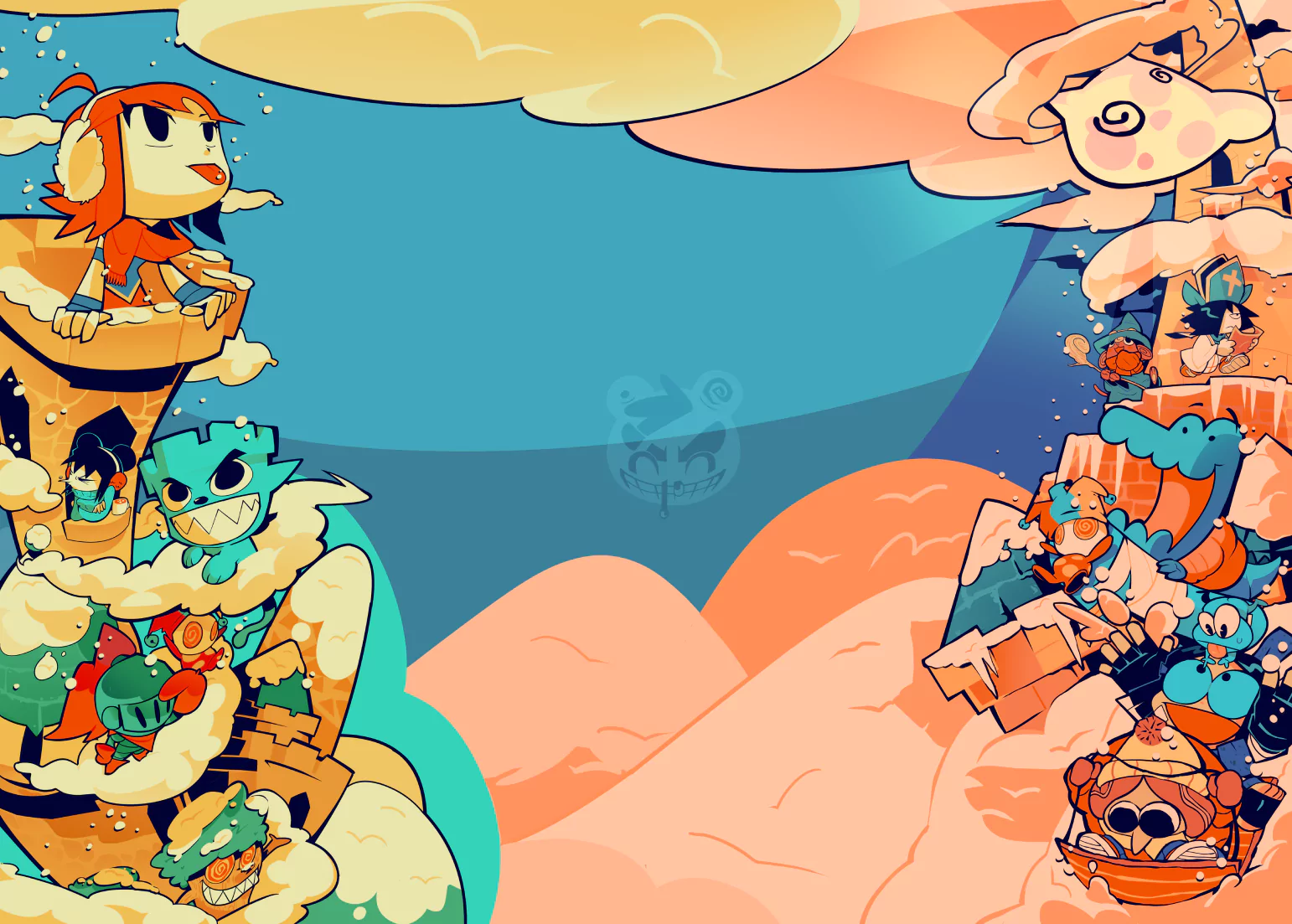At 7/14/23 02:41 PM, GameSmashDash wrote:
At 7/14/23 12:31 PM, Gimmick wrote:
How are you looking to structure your game nonlinearly? I forgot what exactly your game was about. Different approaches can be taken to make the game nonlinear depending on the genre, gameplay and other factors.
Ah I forgot to read the rest of this XD; perhaps I haven't explained the recent project I've been working. I scrapped the Downwell-like concept, not because I was having trouble; I just wanted to work on something I was more passionate about.
As of right now I'm working on a Megaman-esc platformer with RPG elements, exploring different areas, etc.
I am making a game similar to Megaman with using Zero's Melee gameplay combined with Mario movement and Megaman gunplay.
So far; the idea I've been working on is requiring more work because three different game loops combined into one.
Might be a bit more difficult to make the game nonlinear when it's a 2D platformer. I haven't played megaman or metroidvania so I can't really say how it handles nonlinearity, but I would probably consider the win conditions and how the player can get there. For example, if it's an adventure platformer (where you can make use of items to interact with the environment) then you could place puzzles, doors and portals that are locked until you defeat X boss or forward the story by Y...but also add a few "secret" ways to get through them (e.g. picking a lock, or destroying a door with brute force) that allow you to bypass the earlier plot contrivances. On the other hand, if it's a run and gun platformer only, then there's probably fewer avenues for nonlinearity, especially if the player is incentivized to always keep moving (on the rails)
Other ways you could handle nonlinearity are by considering the edge cases that players could theoretically run into if they were so determined. I was playing Battle of the Youstrass, a turn-based SRPG a while ago and it's a rather linear game since you have to follow the story, even if sometimes it doesn't make sense in the context of your characters.
Here, I found the "limit" was when I levelled up my character to level 78 or so in the first level (since fighting enemies levelled the both of you if they didn't die, and they were able to heal themselves), and I could easily clear the next stage before a cutscene of a new character appearing even played. However, I wasn't allowed to actually clear the level because the last enemy just remained at 0 HP, and never died until after the new character was introduced. While on the one hand it's impressive that the developers considered that people could finish the stage in 1 turn (however improbable), it's also a sign that the game is more or less on rails - you have to do as the story tells. You can't play the game without the character that gets introduced.
A nonlinear game would allow you to bypass those, potentially even unlocking new endings if you so desire to program them in. A major character dies in a game (looking at you, FF7) even though you're powerful enough to defeat the big bad 10 times over? Well, just allow the player to jump to the big bad in some way or the other to bypass those pivotal scenes if they want to. Voila, nonlinearity!
So, like mentioned before, find out where the "breaking points" of your story are, and see if you can introduce ways to short-circuit that for the player if they fulfill a set of specific conditions. That's one way to achieve nonlinearity, albeit somewhat limited (since people might not know about those unless they push the game to its limits). However, if you repeat this process again and again (i.e. how can the player short-circuit the short-circuit? If they have to talk to an NPC to get a key, they can steal it. Well if they can steal it, what's preventing them from breaking into the place they have to go anyways? If there's alarms which are disabled with the key, can those be prevented in some other way? etc.)
This is all unfortunately rather vague because there's no one-size-fits-all guide to making gameplay nonlinear. Hell, if you want, just having an overworld which allows you to go to the big bad's castle immediately could be a dead simple route to introducing nonlinearity. But I contend that's not really as much fun as having the more intricate methods, although it does risk players not noticing your efforts unless it's a really popular game.

